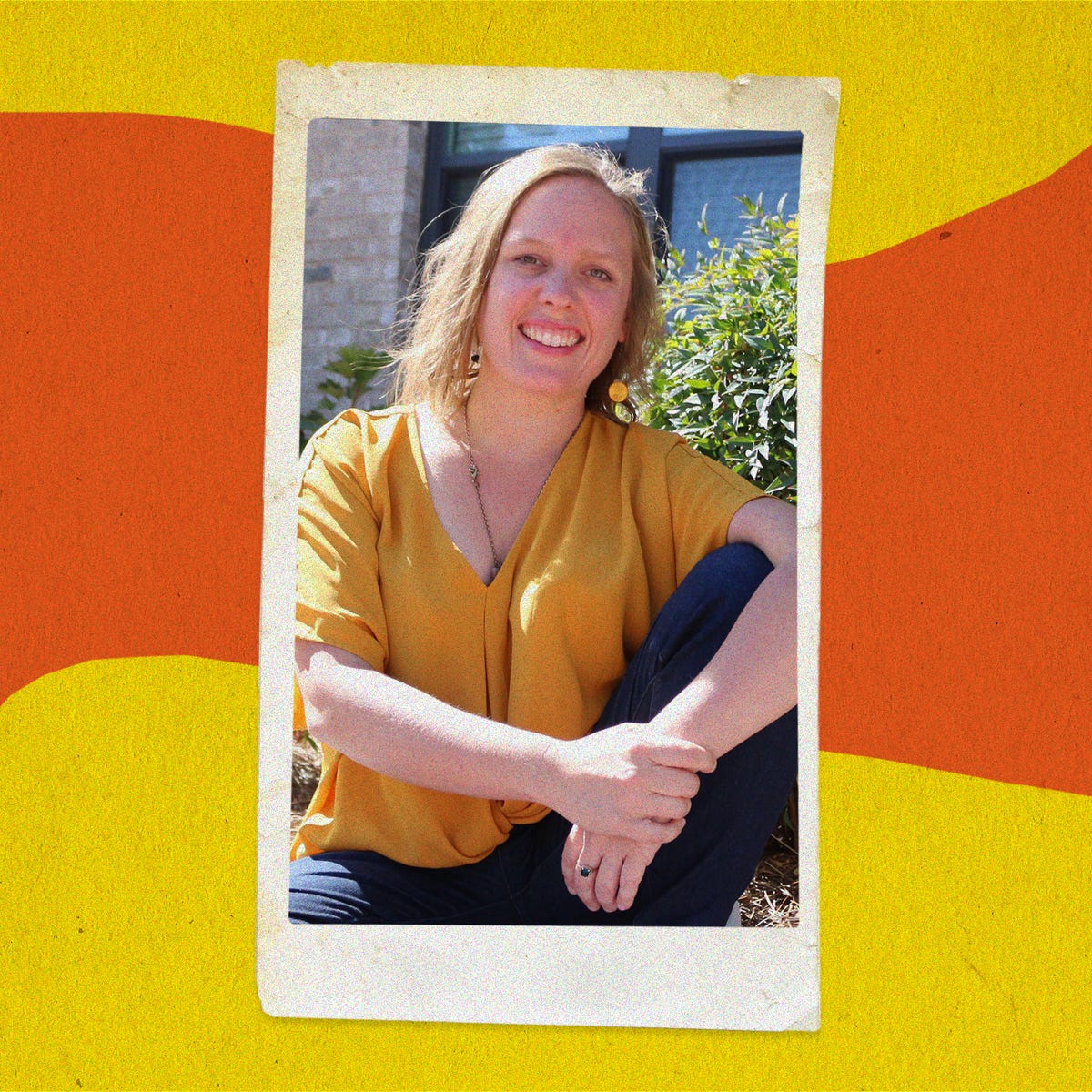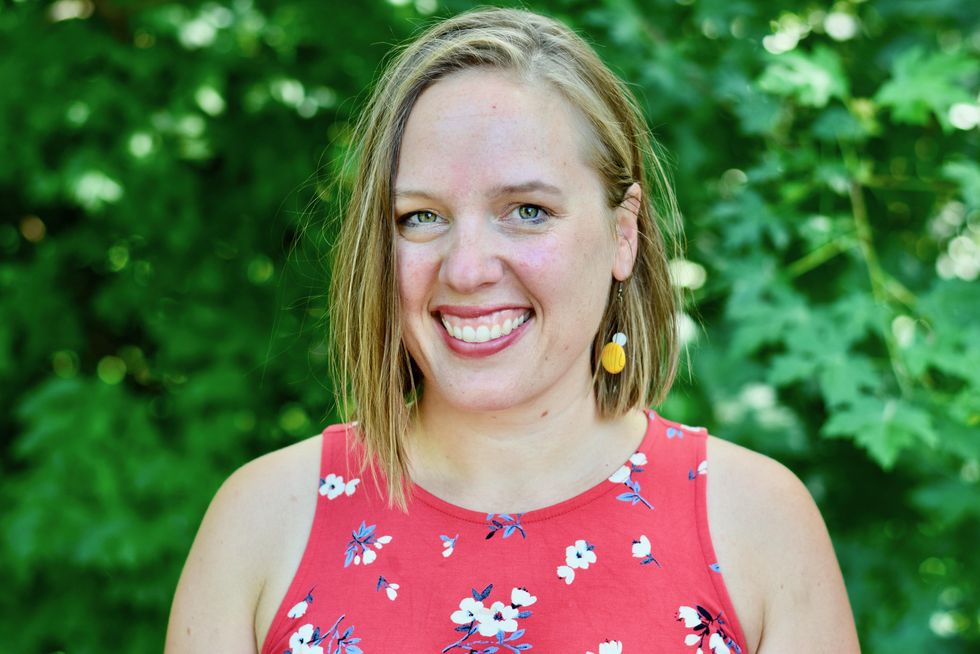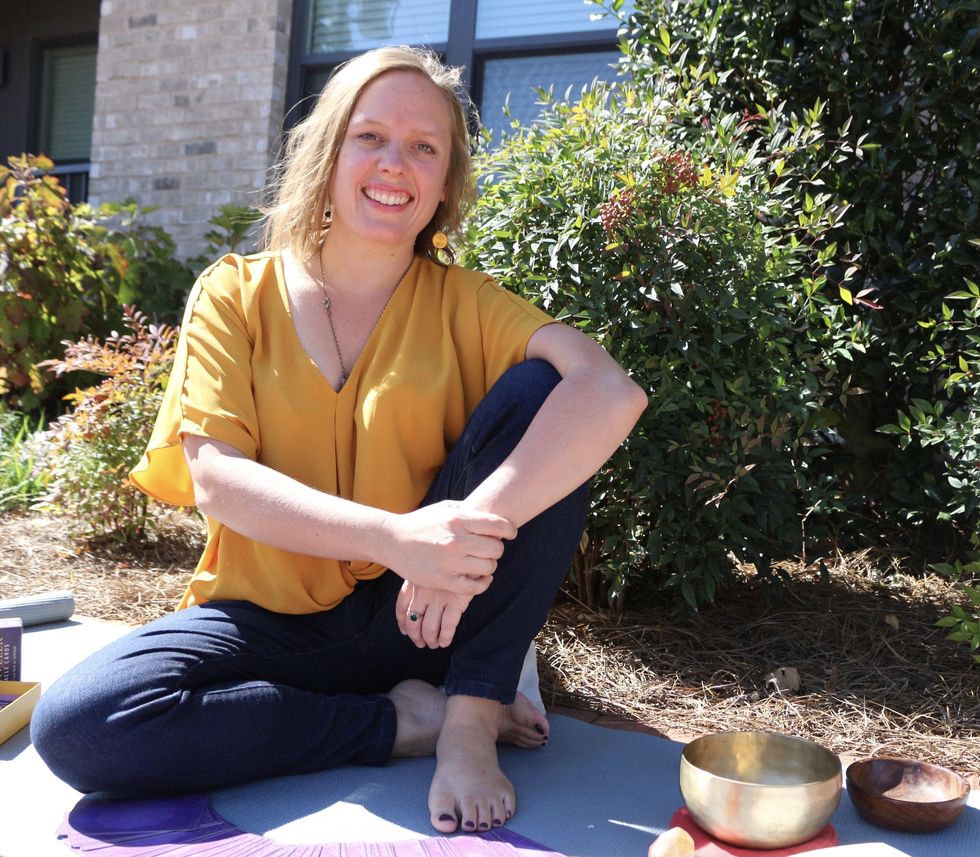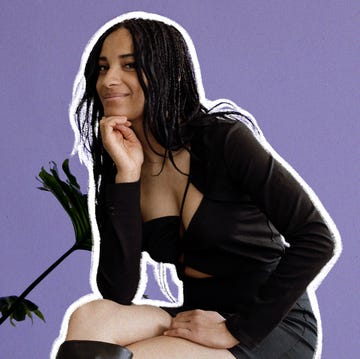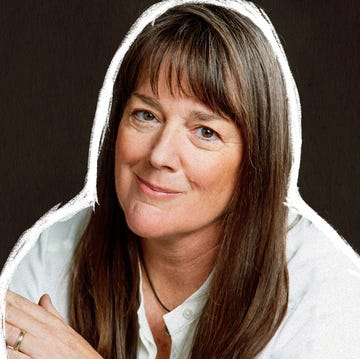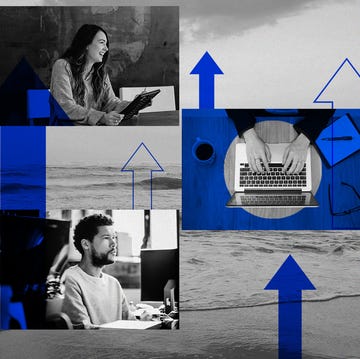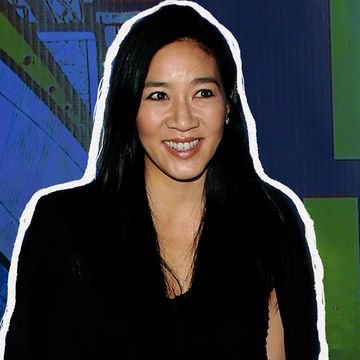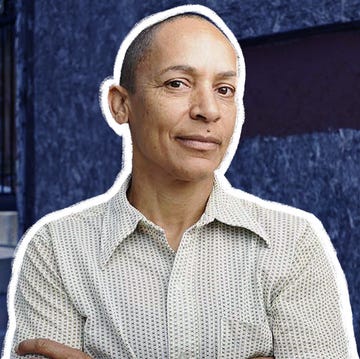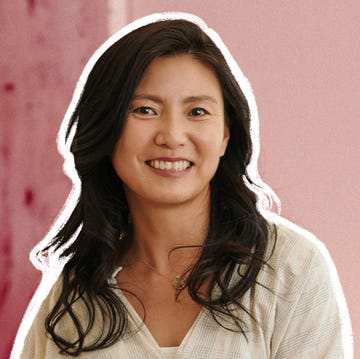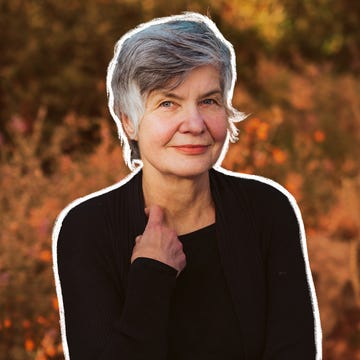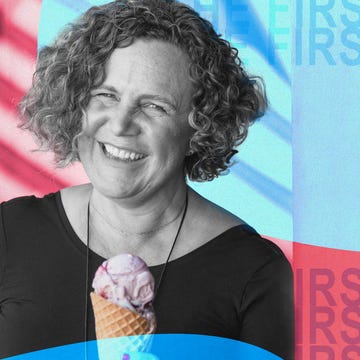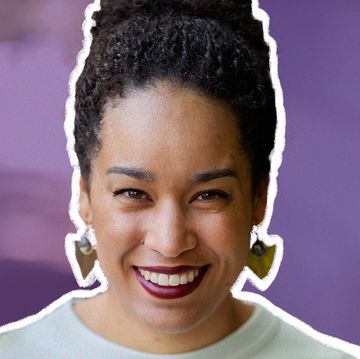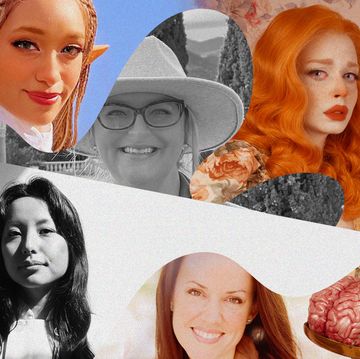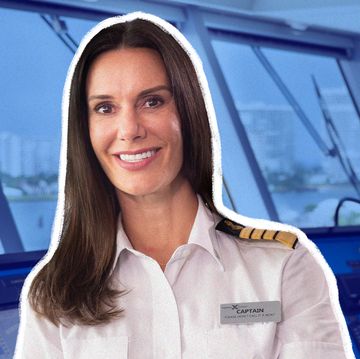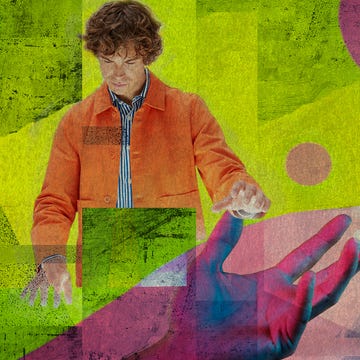In Shondaland’s Joy Makers series, we spotlight creative curators who operate behind the scenes to inspire moments of elation. Their handiwork illuminates pathways to delightfulness, and their one-of-a-kind insights help us find happiness in our own lives. In this month’s installment, we explore the joy of organization.
Joyful Spaces owner Amber Blandford is not your average professional organizer. She helps clients release what is no longer serving them through her holistic business. “It’s way beyond making sure your pantry is all orderly,” the Indiana native says. “It’s so much deeper than that.” Blandford realized early on in her career there was something essential missing from the process of decluttering: connection.
“Growing up, I was around death a lot,” Blandford says, “and I was comfortable with that.” Blandford’s grandmother lived with her family at the end of her life and passed away when Amber was 2 years old. In the following years, many of Blandford’s family members became sick, and she found herself visiting the hospital often to cheer them up. In 2019, her mother, father, and brother died within four months of each another. “Death,” she reflects, “wasn’t hidden from me.”
Blandford decided to put her gift for making people feel at ease to work. She became a certified chaplain to help patients transition and also support families and staff through loss and through grief. She was excited to work with a variety of people each day. “It’s like there’s a surprise behind every door,” Blandford says. “Who are they? What are they going through? How can I meet their needs?”
After seven years as a chaplain and bereavement coordinator in hospital and hospice settings, and around the time of her own divorce and the death of her family members, she had a pivotal realization. “The last six months of life, people get tons of support and care,” she says, “but this could be the same for the living.” The chaplain decided she wanted to make an impact with people who are struggling to part ways with whatever they are holding on to day to day. “I wanted to help the living actually live.”
As a young girl, Blandford yearned to constantly assist her mother, an artist and collector, organize her work at home. While on the precipice of changing her career, Blandford discovered that her next-door neighbor was a professional organizer for a living. She asked if she could join a few projects. Blandford trained intensively for two months through classes and reading. She decided that she wanted to transition from helping people let go of their lives to assisting people let go of their belongings and founded Joyful Spaces.
“For me, it’s all connected,” Blandford says about organizing and spiritual work. The professional organizer, who is also a registered yoga teacher and intuitive guide, believes that what she does is the same as her work as a chaplain. The only difference is that she works with people in their homes rather than in hospitals. “For me, it starts with the chaplaincy of journeying with people,” she says. “The main theme is letting go.”
Now based in Georgia and working virtually, Blandford helps people seeking to release a multitude of items, knickknacks, and belongings. They call or send her photos of where they need her assistance in parting ways with things. Like any professional whose fieldwork is within the home, she begins by surveying the space. The certified virtual professional organizer listens to the person’s vision for their home. Then, she asks questions so that she and her clients can excavate what is no longer needed.
“I always talk about feelings,” Blandford says. “My No. 1 question is ‘How do you want to feel in your space?’ That question helps them identify what they really want.” More importantly, she inquires about how they are and where they are mentally and emotionally. This lets her know what her clients are truly seeking to release.
Blandford’s approach goes beyond the superficial use of particular items. “It’s not about needing or not needing 18,000 hairbrushes,” she says. “If we can really pinpoint ‘What is it that you really want to let go of? Resentment toward your mother? Yeah. Then, you can let go of those vases you’ve been hanging on to for 40 years.’”
When she’s met with resistance to encouraging someone to let go of an item, Blandford typically leads a quick round of deep breathing to put them at ease. “[Deep breathing] gets you from a state of fight-or-flight and moves you into a state of restoration — kind of the same state you’re in when you sleep,” she explains. “Whatever you want to do, if you can do it from a calm, peaceful place, you’ll get there sooner.”
Blandford runs through the steps of the SPACE organizing process developed by Julie Morgenstern: sorting, purging (or culling, as Blandford more sensitively calls it), assigning, containing, and equalizing. Blandford keeps the camera trained on a certain area, and she has her clients remove everything from the space so they can start from the beginning.
“Where people get thrown off,” Blandford says, “is that they want to start purging first.” Before one can cull — or declutter — they need to first sort. “You need to get all of the bowls together, and then you can say, ‘I don’t need 80. I can live with 20.’”
Besides one-on-one sessions, Blandford leads decluttering groups and retreats where she fields questions about how to organize areas like bookshelves and closets. She also navigates complex scenarios, such as what to do with clothes of exes or a loved one who has passed on.
“Truth be told, it’s not going to be joyful for everyone, and it’s definitely not going to be joyful at first,” Blandford says. “That’s the reality. That’s why people don’t do it.” She says that when it comes to reaping the joy of letting things go — whether it’s a material item or a feeling — it’s not a onetime event. To achieve contentment, the process must be repeated. “It is a practice, just like if you wanted to learn a new sport or hobby.”
For Blandford, decluttering is a vessel for deeper healing and, eventually, deeper joy. “To me, joy comes from a grounded state of peace,” she says. While clients might initially contact Blandford merely to have their Tupperware organized, they are opening up about what they truly want out of their lives by the end of the process. “The people that find me, it’s not about organizing,” she says. “Both in groups and in one-on-ones, they’re like, ‘Can we just talk?’ I’m like, ‘Of course.’ Organizing is only the door.”
Decluttering, Blandford has discovered, is not about an end point. It’s a starting line for how you want to live. “If you think of a box that’s really, really full,” Blandford says, “it’s like, ‘How can I put joy in here?’ You can’t. It’s too full. Let’s take some things out. Then, you have room for joy to come in. You have to make space to bring in what you want.”
Amber Blandford’s Three Tips for Letting Go
Be gentle with yourself
“Be kind to yourself. You’re in a new space. It has different needs. You’re letting go so eventually you can bring in. You’re working the process. You’re doing it. Give yourself credit.”
Focus on the good
“If it makes me dance, it’s a yes. That’s my body’s way of telling me, ‘I love it.’ If I’m like, ‘Maybe if I did this, and I turn that, and add this,’ that’s not a ‘hell, yes.’ Let it be someone else’s joy.”
Celebrate it
“Change is a sign of life. If you’re being invited to change something or take things out of your home, it’s a sign that you’re living and that you’re paying attention. It’s something to be celebrated.”
Mia Brabham is a staff writer at Shondaland. Follow her on Twitter at @hotmessmia.
Get Shondaland directly in your inbox: SUBSCRIBE TODAY
